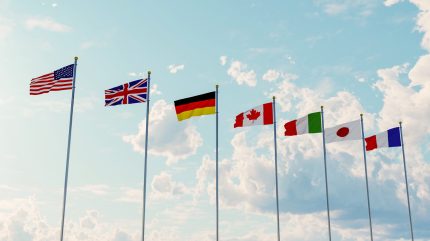
The G7 nations have provisionally agreed on a comprehensive strategy to safeguard the supply of critical minerals, aiming to strengthen their economies and national security.
This decision comes amidst growing concerns over supply chain vulnerabilities, highlighted by China’s recent suspension of critical minerals exports, reported Reuters, citing sources.

Discover B2B Marketing That Performs
Combine business intelligence and editorial excellence to reach engaged professionals across 36 leading media platforms.
The G7 leaders recognise the need for markets to reflect the true costs of responsible extraction, processing and trade of critical minerals.
The draft, pending approval by US President Donald Trump, underscores the importance of countering non-market policies that threaten access to these materials.
China’s move in April to halt exports of critical minerals and magnets has caused significant disruptions for various industries globally.
Last week, President Trump announced that Chinese President Xi Jinping had agreed to resume exports of rare earth minerals to the US.

US Tariffs are shifting - will you react or anticipate?
Don’t let policy changes catch you off guard. Stay proactive with real-time data and expert analysis.
By GlobalDataHowever, rare earths and other critical minerals continue to be a point of contention, with the draft statement noting, “non-market policies and practices in the critical minerals sector threaten our ability to acquire many critical minerals”.
The G7’s strategy includes measures to anticipate shortages, coordinate responses to market disruptions, and diversify sources across the mining, processing, manufacturing and recycling sectors.
Recent trade talks between the US and China in London have left the issue of rare earth element exports, particularly those used in military applications, unresolved.
Despite being announced as a “great deal” by Trump, the export of rare earth magnets essential for US military hardware remains in limbo.
While the US has agreed to allow certain rare earth magnets from China, Beijing has not yet committed to exporting specific magnets needed for fighter jets and missile systems.
This comes as the US maintains restrictions on China’s access to advanced AI chips due to their potential military applications.





